In healthcare Revenue Cycle Management (RCM), medical collections represent a critical function, yet one fraught with sensitivity. The traditional image of collections often clashes with the inherently empathetic nature of patient care. However, financial viability is essential for healthcare providers to continue delivering quality services. The modern imperative, therefore, lies in skillfully balancing effective collections strategies with genuine compassion for patients facing financial obligations, often during vulnerable times. This approach not only aligns with ethical standards but also fosters patient trust and loyalty, ultimately contributing to a healthier revenue cycle.
For organizations like Medetec, which specialize in optimizing RCM, integrating compassion into the collections process is key to sustainable financial health and positive patient relationships. This post explores essential strategies for achieving this delicate, yet crucial, balance.
Clear and Empathetic Communication in Medical Collections
Effective empathetic collections communication starts with training your team to view each account as a person, not just a balance. Key tactics include:
- Active Listening: Encourage specialists to ask open‑ended questions (“Can you help me understand any challenges you’re facing?”) and paraphrase concerns to confirm understanding.
- Positive Language: Replace “You owe” with “Let’s work together on your balance.” This subtle shift reduces patient anxiety and fosters collaboration.
- Multi‑Channel Outreach: Combine phone calls, secure patient portals, and SMS reminders always offering opt‑out and easy access to support.
By centering conversations on patient needs, you decrease call‑disputes and increase on‑time payments.
Personalized Payment Options to Improve Patient Experience
Rigid billing plans often push patients further into financial distress. Personalized payment options can include:
- Sliding‑Scale Plans: Tie monthly installments to income brackets, which guarantees affordability.
- Interest‑Free Installments: Offer 3–6 month plans with no added interest.
- Online Self‑Scheduling: Allow patients to select due dates and payment amounts that align with their pay cycles.
When patients feel heard and accommodated, they’re more likely to adhere to their payment plans reducing write‑offs and improving collections efficiency.
Transparent Billing Practices for Trust Building
Transparency is the cornerstone of medical billing transparency:
- Itemized Statements: Clearly list services, CPT codes, and any adjustments.
- Estimate Tools: Provide pre‑service cost estimates via your website or patient portal.
- Upfront Disclosure of Fees: Alert patients to potential out‑of‑pocket expenses before service delivery.
Transparency not only diminishes surprise bills but also positions your organization as trustworthy.
Culturally Sensitive Interactions in Healthcare Collections
In our diverse society, culturally sensitive medical billing is imperative:
- Language Access Services: Offer translated materials and interpreter support for non‑English speakers.
- Cultural Competency Training: Educate staff on cultural norms around money, health, and family decision‑making.
- Respectful Scheduling: Be mindful of religious holidays and community events when setting payment due dates or making outreach calls.
By honoring cultural differences, you demonstrate respect and avoid misunderstandings that can stall collections.
Comprehensive Training for Collections Specialists
Collections success hinges on well‑trained staff:
- Role‑Playing Scenarios: Simulate difficult calls like late payments, financial hardship disclosures to build confidence.
- Empathy Workshops: Teach active listening, de‑escalation techniques, and trauma‑informed approaches.
- Legal & Compliance Refresher: Confirm that specialists know what they can and cannot say under FDCPA and HIPAA regulations.
Ongoing training reduces staff turnover, improves call quality, and drives more consistent payment outcomes.
Leveraging Data Analytics for Effective Collections
Data‑driven insights empower smarter strategies:
- Segmentation Analysis: Identify patient cohorts (e.g., high‑balance, high‑risk) and tailor outreach frequency and messaging.
- Predictive Modeling: Use historical payment patterns to forecast which accounts are most likely to pay and which need alternative strategies.
- Performance Indicators: Track key metrics such as days in accounts receivable and return call abandonment/neglect rate.
By harnessing analytics, Medetec’s revenue cycle management platform can pinpoint bottlenecks and allocate resources where they’ll have the greatest impact.
Maintaining Compliance with Legal Standards in Medical Collections
Staying within legal boundaries protects both patients and providers:
- FDCPA & HIPAA Alignment: Develop scripts and workflows that respect patient privacy and fair debt collection rules.
- Audit Trails: Maintain detailed logs of all communications and billing actions.
- Policy Reviews: Schedule quarterly reviews of collection policies to incorporate changes in federal, state, and payer regulations.
Conclusion
Balancing compassion with collections requires an integrated approach: clear, empathetic communication; flexible payment options; transparent billing; cultural sensitivity; rigorous staff training; data analytics; and unwavering legal compliance. By embedding these principles into your medical collections strategy, Medetec helps healthcare organizations enhance patient satisfaction, reduce bad debt, and sustain a healthy revenue cycle. A robust compliance framework minimizes litigation risk and upholds Medetec’s commitment to ethical collections.
For a deeper consultation on transforming your medical collections process, visit Medetec.com or contact our revenue cycle experts today.


